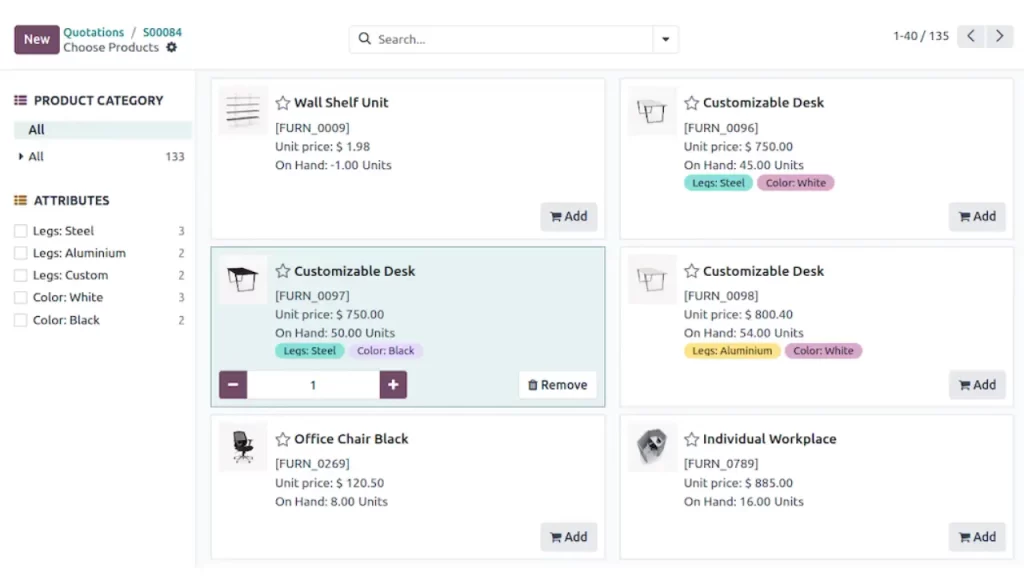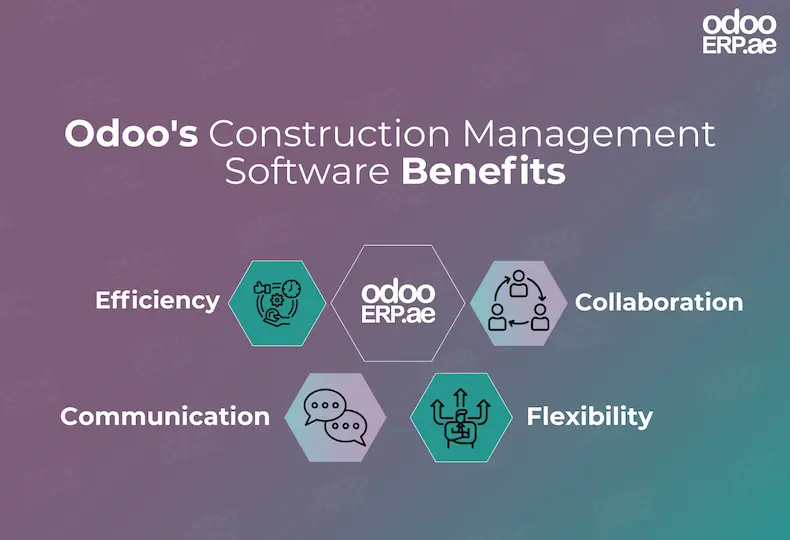What is a CRM for Construction Industry?
Do construction companies need CRM? is there a CRM made for them? Absolutely!
Construction companies benefit greatly from a Customer Relationship Management (CRM) system, as it helps streamline project management, client communication, and sales processes. Construction businesses handle complex projects, a CRM is needed centralizes handle operations and all interactions.
Why Construction Companies Need CRM
- Bid & Proposal Tracking – Manage bids, follow up on leads, and improve win rates with structured tracking.
- Client & Contractor Communication – Keep a record of emails, calls, and contracts for smooth project execution.
- Project & Deal Pipeline Management – Track leads, pending contracts, and ongoing projects in one place.
- Task & Workflow Automation – Schedule follow-ups, send automated reminders, and track project progress.
- Post-Project Engagement – Manage warranties, service requests, and customer satisfaction after project completion.
Is There a CRM Made for Construction Companies?
Construction companies has the option to choose between many industry-specific CRMs and General CRM software. industry-specific CRMs may seem the obvious choice till you know how the later provide customizable modules to fit construction-specific needs.
Customization features have led to many construction businesses to migrate from the industry-specific CRMs to general ones such as Odoo CRM. Integrations also play a key role here
Top Best CRM Solution for construction companies
| Software | Best for | Standout feature |
|---|---|---|
| Odoo | Construction businesses needing a fully integrated project and client management system | Fully integrated with project management, accounting, and inventory for seamless operations |
| Monday CRM | Contractors looking for a highly customizable and user-friendly CRM | Visual project tracking with drag-and-drop automation |
| Pipedrive | Small to mid-sized construction firms needing a clear sales pipeline | Intuitive deal tracking with Kanban-style visualization |
| HubSpot CRM | Companies seeking a marketing-focused CRM with automation tools | Advanced lead nurturing and email automation for client engagement |
| Zoho CRM | Growing contractors looking for a scalable client management system | AI-powered lead and contact management for sales growth |
10 Key Benefits of Using a CRM for Construction Company
Using a Construction CRM or ones that are customized for these businesses brings many joys to performance. Impact is clear to everyone, however major difference is noticed greatly by higher levels of management.
Here’s why investing in a CRM for construction contractors is essential in 2025.
1. Streamlined Bid and Lead Management
CRM helps construction companies and contractors track leads, manage bids, and follow up with potential clients effortlessly. No more lost proposals or forgotten follow-ups—everything is stored in one place. According to a study, businesses using CRM software solution see a 29% increase in sales. Notifications and reminders can help improve performance, productivity and enhance progress tracking seamlessly.
2. Improved Client Communication and Relationship Building
Construction projects are built on relationships with suppliers and clients. Maintaining strong relationships with them is essential for repeat business. A CRM keeps records of every interaction or note.
3. Faster and More Accurate Quoting
A CRM allows for quick and accurate quote generation by pulling pricing, material costs, and labor estimates into a structured proposal. Research shows that 35-50% of sales go to the vendor who responds first!
From Odoo, you can create quotes fast from many ready templates and send them instantly via email or WhatsApp.

4. Better Project Oversight and Task Management
You are managing multiple teams? No more missed deadlines. Stay ahead of your schedules, keep track of each project in real time. Follow up with internal teams, and add notes for everyone to see.
A CRM ensures keep track of every stage and step via multiple views (Gantt, Kanban, etc.). Live notifications are sent to responsible users to ensure they do not miss any update.
5. Enhanced Collaboration Between Teams
Miscommunication between sales, project managers, and on-site teams can result in costly errors. A CRM connects everyone, ensuring that all departments have access to updated project details.
6. Reduced Errors and Miscommunication
Construction projects involve contracts, blueprints, permits, and countless documents. A CRM ensures that all project details are stored, updated, and accessible in one place. No more misplaced paperwork or missed project requirements.
7. Increased Profitability Through Better Cost Control
How to increase Profitability? simply by reducing costs. Identifying costs and losses is easier with a platform where you can track payments and revenues.
8. Improved Client Retention and Repeat Business
Acquiring a new customer is 5 to 25 times more expensive than retaining an existing one. A CRM ensures that past clients receive follow-ups, maintenance offers, and personalized communication—leading to repeat business and referrals.
9. Data-Driven Decision Making
CRM provides valuable insights into business performance. Tracking revenues is essential to improve sales performance. Monitoring Project Profitability helps you decide best type of projects for your business.
Data is always your friend, CRMs come and organize and categorize them just the way construction companies need.
10. Competitive Advantage in the Market
Contractors who embrace technology stay ahead of competitors. A CRM boosts efficiency, customer satisfaction, and project organization, making businesses more attractive to potential clients.
Essential Features to Look For in CRM
A Construction CRM should do more than manage contacts—it must help track bids, optimize workflows, and improve communication across teams. Here are the must-have features for 2025:
- Centralized Communication: Stores all emails, calls, and messages in one place, ensuring seamless coordination between contractors, clients, and subcontractors.
- Advanced Reporting and Analytics: Tracks project performance, bid success rates, and lead conversion to improve decision-making.
- Seamless Integrations: Connects with accounting software, project management, and procurement tools to eliminate manual data entry.
- Mobile Access: Enables field teams to update project status, access client details, and log changes in real time from the mobile app.
- Lead and Bid Management: Helps track leads, RFPs, and proposals, ensuring no opportunity is missed.
- Estimating and Quoting: Generates quick, professional quotes with automated cost calculations for materials and labor.
- Workflow Automation: Automates repetitive tasks like follow-ups, approvals, and scheduling, reducing manual work.
- Customizable Pipelines: Adapts to different construction sales cycles, from lead inquiry to contract signing.
- Document Management: Stores contracts, permits, and compliance documents for easy access and tracking.
- Customer and Client Management: Keeps detailed records of vendors, work history, and project performance.
What is the best CRM for construction firms?
The best CRM for construction firms depends on the company’s needs—whether it’s tracking bids, managing subcontractors, or improving client communication.
Here’s a breakdown of the top CRM options for construction businesses in 2025:
1. Odoo Best All-in-One Construction CRM
Ideal for Contractors needing a fully integrated project, sales, and financial management system.
Why Choose Odoo?
Odoo offers a comprehensive, modular CRM that integrates with project management, accounting, inventory, and HR—making it perfect for construction firms that need an all-in-one business solution.
Key Features:
- Customizable sales pipeline for tracking leads, bids, and contracts.
- Project tracking tools like Gantt charts and Kanban boards to oversee timelines and resources.
- Automated invoicing and cost tracking linked to project budgets.
- Mobile access for on-site team collaboration and updates.
2. Monday CRM Good for Custom Workflows
Ideal for Contractors who need highly visual, flexible project and lead tracking.
Why Choose Monday CRM?
Monday CRM is a drag-and-drop, customizable platform that helps construction firms manage sales pipelines, client interactions, and project updates in one place.
Key Features:
- Visual sales pipeline with color-coded progress tracking.
- Workflow automation for follow-ups and task assignments.
- Integration with scheduling tools for better project coordination.
- Collaboration features for real-time team communication.
3. Pipedrive Suitable for Sales and Bid Tracking
Ideal for Contractors focused on winning bids and managing deal pipelines.
Why Choose Pipedrive?
Pipedrive is a deal-driven CRM that helps contractors track bids, manage leads, and close more projects. It’s designed for sales teams that need a clear visual pipeline of ongoing deals.
Key Features:
- Kanban-style deal tracking for managing bids.
- Automated email follow-ups for proposal management.
- Revenue forecasting based on past deal performance.
- Mobile-friendly interface for quick project updates.
4. HubSpot CRM Good Choice for Marketing and Client Engagement
Ideal for Contractors needing marketing automation and client relationship tracking.
Why Choose HubSpot CRM?
HubSpot offers free CRM tools with strong marketing, email automation, and customer tracking features. It helps construction firms engage clients before, during, and after projects.
Key Features:
- Automated follow-ups with email sequences.
- Lead tracking and nurturing tools for bid opportunities.
- Marketing automation for email campaigns and social media.
- Integration with third-party tools for customer engagement.
5. Zoho CRM Best for Scalability
Ideal for Growing construction businesses looking for affordable scalability and automation.
Why Choose Zoho CRM?
Zoho CRM is an AI-powered platform with lead tracking, automation, and detailed analytics—making it a cost-effective option for firms needing advanced CRM tools.
Key Features:
- AI-driven insights to predict bid success rates.
- Lead capture from multiple channels (email, website, phone calls).
- Automated workflows to reduce manual follow-ups.
- Integration with Zoho Projects for seamless project tracking.


 The answer is no, there is quite a difference between odoo’s software and the ones available in the market. Buying odoo’s cloud based construction project management software comes with many advantages
The answer is no, there is quite a difference between odoo’s software and the ones available in the market. Buying odoo’s cloud based construction project management software comes with many advantages